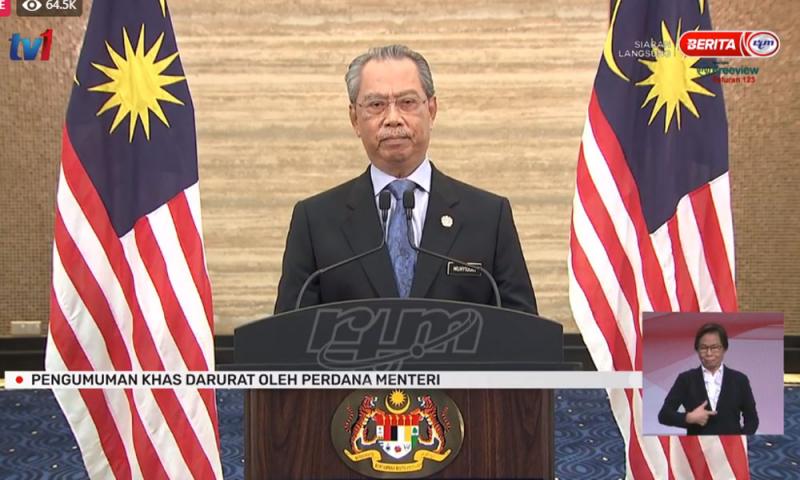How emergency powers might affect you
The Emergency (Essential Powers) Ordinance 2021 is now in force and backdated to Jan 11.
There is no expiry to this ordinance. It can be withdrawn when the Yang di-Pertuan Agong deems fit.
Emergency ordinances are special laws that the Agong can pass during an emergency period without needing the permission of Parliament. Below are the powers of the Emergency (Essential Powers) Ordinance 2021 in brief:
Penalties
Anyone who fails to comply with government demands to hand over property or resources can be jailed up to 10 years, fined up to RM5 million or both.
Legal immunity
No legal action can be initiated against the government or its agents in carrying out this ordinance.
Property seizure
The government may take temporary possession of any land, building or movable property.
The assessment of the compensation shall be final and cannot be challenged in court.
Use of resources
The government may demand "any resources" to be utilised for any purpose deemed necessary.
Resources include human resources, facilities, utilities and assets.
The government will have the final say on the charges that can be imposed by the person providing these resources.
More powers for Health Ministry
The government can appoint anyone to issue directions for treatment, immunisation, isolation, observation or surveillance. This provision is likely to empower specific private health workers.
Armed forces
The armed forces shall have all the powers of police officers.
Certificates for medical practitioners
The government may exempt a medical practitioner from complying with the address of the principal place of practice specified in practising certificates.
Below are the replies to questions Malaysiakini has received.
Can I refuse immunisation?
Most likely not. Section 6(1) of the Emergency (Essential Powers) Ordinance 2021 confers powers on agents who are given power under the Prevention and Control of Infectious Diseases Act 1988.
Penalties under the Act include jail time and fines.
Who is in power?
The prime minister, federal cabinet, menteri besar, chief minister, state executive council or state cabinet which existed before Jan 11 will continue to exercise their functions.
Can there be elections?
Vacancies in the Dewan Rakyat, Dewan Negara and state legislative assemblies will not be filled. Article 54 and Article 55 of the Federal Constitution as well as state laws relating to elections will not have any effect during the emergency period.
Can Parliament sit?
No.
Who provides check and balance?
His Majesty the Yang di-Pertuan Agong has the final say on the issuance of any emergency ordinance.
[Question from subscriber] Can the authorities commandeer my car to ferry Covid-19 patients? Can my home be seized for to house Covid-19 patients?
According to our reading of Section 3 and 4 of the Emergency (Essential Powers) Ordinance 2021, the answer is yes.
[Question from subscriber] Do I have to live in fear that my property and family can be forced to work for the authorities?
No you shouldn't, unless your property and family have skills that is useful for dealing with the Covid-19 pandemic.
RM12.50 / month
- Unlimited access to award-winning journalism
- Comment and share your opinions on all our articles
- Gift interesting stories to your friends
- Tax deductable
